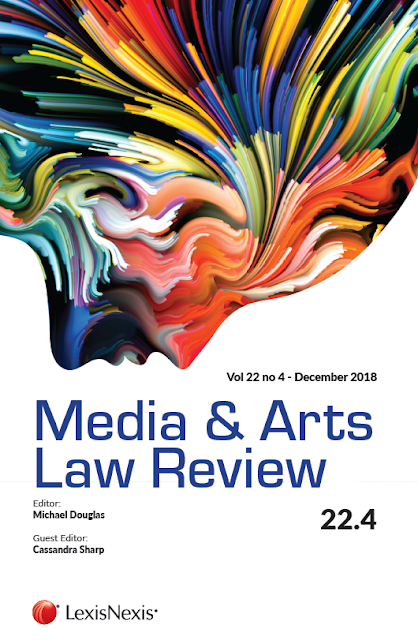Volume 24
(2020) – CALL FOR PROPOSALS
Due 1 May
2019
The Editorial Board of Law Text
Culture is seeking proposals for the 2020 edition of the Journal (Volume 24),
due for publication in December 2020.
Law Text
Culture is a transcontinental, peer-reviewed interdisciplinary journal which
aims to produce fresh insights and knowledges about law and jurisprudence
across three interconnected axes:
Politics: engaging
the relationship of force and resistance
Aesthetics: eliciting the relationship of judgment and
expression
Ethics: exploring the relationship of self and
other.
The annual thematic special issue, curated by guest editors, is selected
by the editorial board. Each issue
explores its theme across a range of genres, with scholarly essays and articles
sitting alongside visual and literary engagements. In this way, Law Text Culture excites unique
intersectional and interdisciplinary encounters with law in all its forms.
Proposals by potential guest editors should include:
- a concise description of the proposed theme;
- a draft call for papers setting out the aims and concepts of the issue;
and how it fits within the remit of the journal;
- an indication of the intended authors and how they are to be
identified/contacted (eg whether the proposal arises out of a seminar series,
conference or workshop);
- the range of genres (poetry, scholarly essays, visual arts etc) expected
to be included;
- an explanation of how the copy-editing will be completed, including
whether the guest editor/s will secure appropriate funding for copy-editing
(usually approx $1000), or undertake the copy-editing themselves; and
- brief details of the guest editor(s).
Proposals should
be 1000 words (approx) and should be emailed to the Managing Editor by close of
business 1 May 2019. For further information, including the role of guest
editors, and the journal style guide, please visit: LTC at LIRC.
Details on the editors and themes of previous editions of Law Text Culture are available at: UOW Research Online.
 Associate Professor Cassandra Sharp
Associate Professor Cassandra Sharp
Managing Editor Law
Text Culture
School of Law, University of Wollongong NSW







